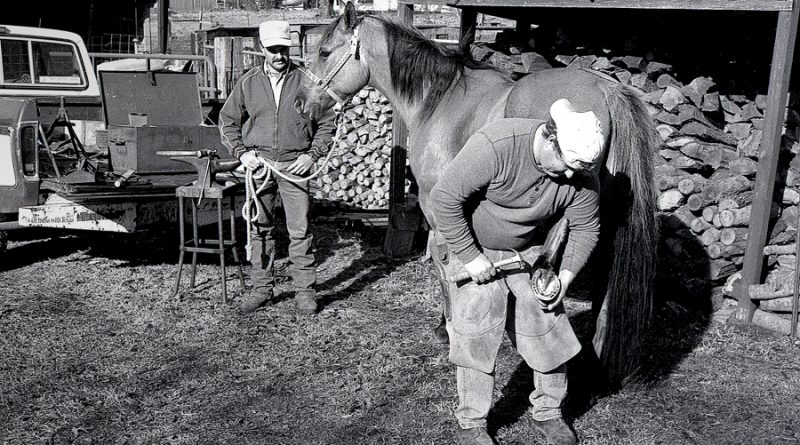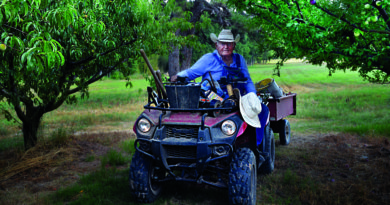Bootstrap manufacturing boomed in rural Titus County community
Above photo, Cookville’s Steve Adkison shoes “Dunny,” for Gary Maples. Industries in the rural Titus County Community of Cookville used over 150 tons of steel a week, at least a part of it in the form of horse shoes.
From East Texas Journal, January 1994
By Hudson Old, Journal publisher
COOKVILLE, TEXAS 1994 – Some 200 dozen minnows (in season); 1,500 tons of road base material, 125 tons of concrete and 150 tons of steel were trucked into and out of here every week.
And the alfalfa hay business wasn’t bad, said community horse shoer Steve Adkison.
On days that he was not up shoeing horses, Mr. Adkison and his bride, Wanda, were prone to load up in the Sunday pickup with their saddle mules in tow and head out.
“We’ve managed to have a pretty good time,” Mr. Adkison said.
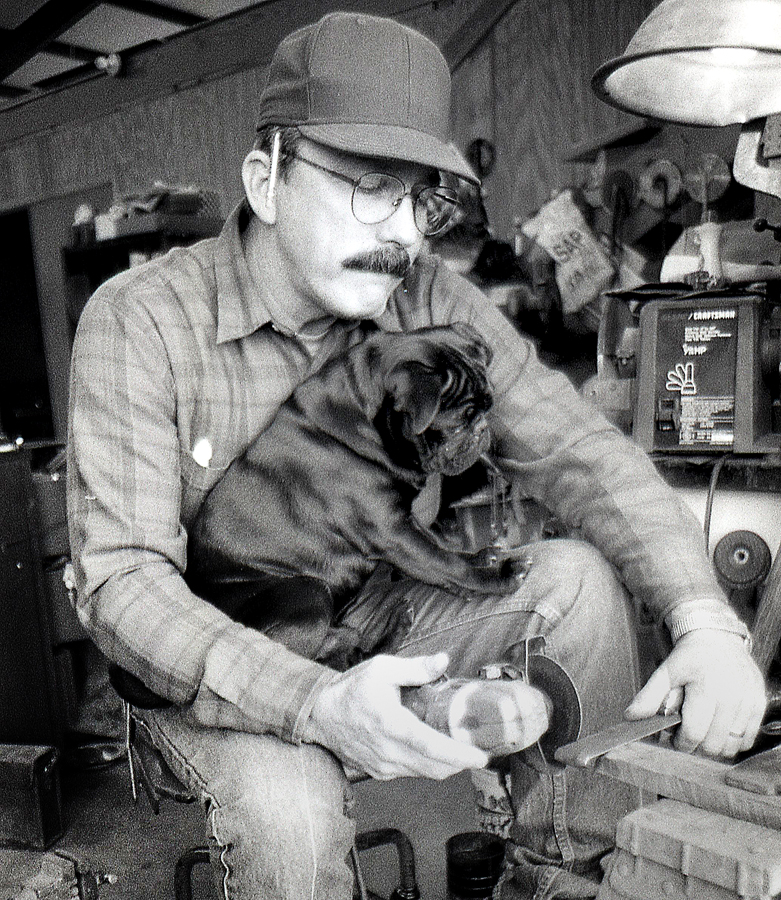
Up on the Kansas prairie, they saddled mules and rode the old Smokey Hill Stage Route, a trail ride where they met Steve Pool, who ran a ranch for a movie star and tended fine Angus cattle on the best hay he could grow.
Mr. Pool invited Mr. Adkison back up to Kansas to help with a roundup and the next thing you know, Mr. Pool’s trucking alfalfa hay down to Mr. Adkison’s place and hauling back rough cut oak, a few trailers, some feed troughs and horses, making money on both ends with Mr. Adkison in the middle. The country boys get by.
“If you wanna know who’s bringing new money into Titus County, just ride out through Cookville,” observe Cal Hutson, a coffee shop insider.
A corps group of four trailer manufacturers, two cattle equipment builders, the post office and the community grocery store were the community’s largest employers.
Then there was the lawn mower shop, the trading post, the sign company, the bottled water place, the knife maker, the man crushing and selling road base material and probably twice their numbers combined involved in some sort of cottage industry — many of them built trailers and shipped them across the United States.
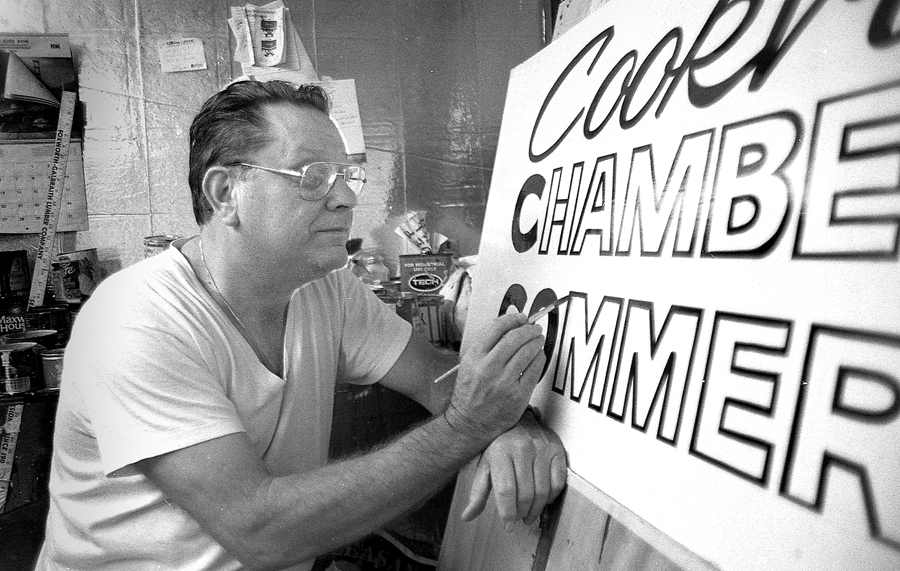
“We’ve got 30 active accounts and probably three times that many small builders,” said Cathi McCollum- Smith, co-owner of Trailmaster, Inc. The company manufactures trailer parts and steel “kits” sold to trailer manufacturers.
“A builder would give them the specifications on his parts and we would do the pre-fab work,” she said.
Grasping at numbers totally unscientifically compiled, Trailmaster was responsible for about half the steel circulating through here each week.
Mrs. McCollum-Smith said the business fired up 10 years back when her father, John McCollum, began collecting trailer manufacturers’ scrap to build tail-light brackets.
Bootstraps are the common denominator around here.
Mr. Adkison was a former Lone Star Steeler until the manufacturing Mogel shut down its big furnace. He came on home and turned full-time cowboy, which was what he wanted to do anyway.
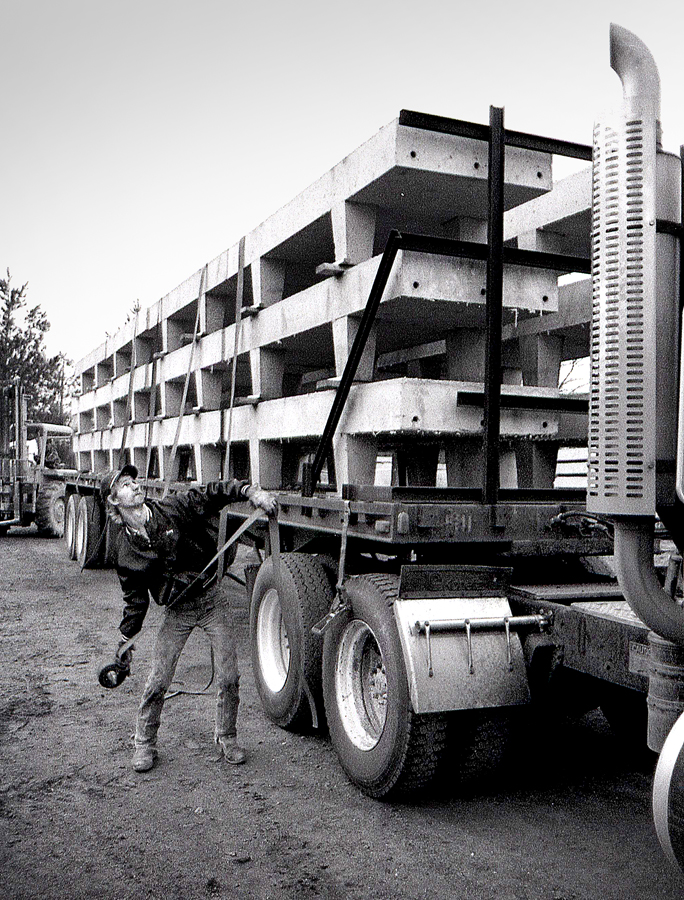
Larry Cox walked out on Lone Star Steel while it was still a gravy train.
” I spent six months playing racketball,” he said, but gave it up and began building concrete products.
Whenever local ranch foreman Roger Jones approach Mr. Cox about building some concrete feed troughs — Mr. Jones was tired of knuckle-head yearling bulls jumping up in his old troughs and tearing them down — Mr. Cox drew up some plans to build a form. The prototypes worked, provided you had a small crane or a big tractor and a full crew of cowboys to move the thing.
“Early on, I’d have maybe 30 of them sitting on the yard,” Mr. Cox said. “People walked by and said, ‘hm,’ but that was about it.”
Weight was the big problem in the days before everybody’s tractor came with a front-end loader.
Back then the last manufacturing kink evaporated the day it dawned on Mr. Cox to mount the thing on skids.
Now extinct, his Skid Trough was once revolutionary.
To test design, he hooked it with a chain behind his tractor. “I pulled it out in the pasture and yanked it up and down the creek bank and banged it into trees. I got my front end loader and flipped it over, then flipped it back over. When it hit the ground still in one piece I had a trough that a bull wouldn’t tear up that was light enough to move around with a 40-horse tractor,” he said.
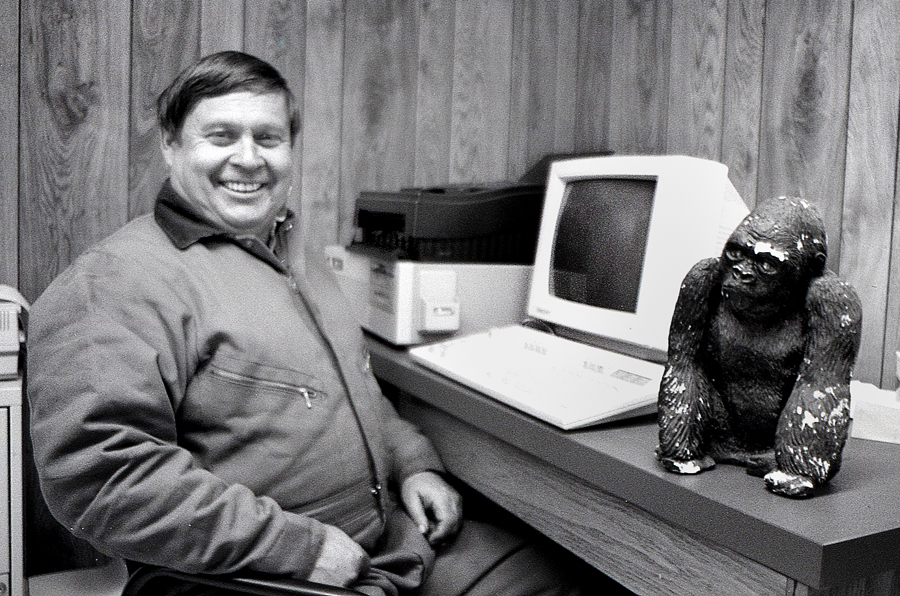
It’s a matter of semantics — make that coffee shop debate — when wrangling about who built the first 16-foot flatbed utility trailer in Titus County, but Billy Merritt was among the pioneers.
A member of the class of ’59, his folks bought him a welding machine when he got out of high school.
Among his first projects was a horse trailer. He began buying oil derrick iron from C.F. “Slim” Faulkner and built his first utility trailer for an auctioneer named Garvin Smith.
“He’d seen my work and he bought a tractor and needed a way to haul it home,” Mr. Merritt said.
By ’66, he and the late Smut Smith had gone in partners and built a shop where they welded and built trailers.
Ten years later, they sold out to Texas Bragg.


